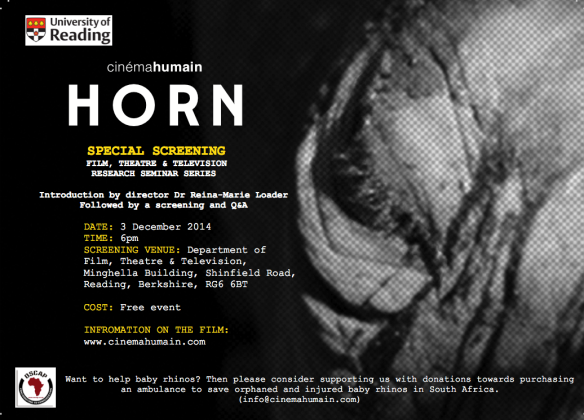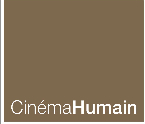Results were announced today from the Research Excellence Framework, the UK’s national research evaluation process. We are delighted that nearly 80% of our research in Film, Theatre & Television has been evaluated as world-leading or internationally excellent. Our research environment, which includes research grant acquisition, postgraduate research and staff development, continues to score very highly (100% world-leading or internationally excellent). You can see the details here. Across all subjects the University of Reading is ranked 27 out of 154 UK institutions for its “research power” and is one of the UK’s most research-intensive universities.
Monthly Archives: December 2014
Reflections on Actors
FTT’s Simone Knox has recently completed a triptych of short reflections on the work of actors for Flow, an online journal of television and media studies hosted by the University of Texas at Austin. The first blog post explores the presence and success of British actors in contemporary US film and television fiction. The second one considers the situation and experience of minority identity actors in the creative industries of contemporary Britain. The final reflection pays attention to the work of the dubbing actor, arguing that dubbing needs to be understood as a creative act of performance. These reflections are part of Simone Knox’s ongoing research into the lived experience of screen culture.
Special screening of HORN introduced by Film, Theatre & TV filmmaking graduate Dr Reina-Marie Loader, and followed by a director Q&A
 HORN has recently premièred in Vienna, Austria and has been invited to several festivals, conferences and awareness events. The film draws attention to rhino poaching and connected social issues by challenging predominant assumptions that rhino conservation simply involves the protection of a species. It does so by foregrounding specific socio-economic issues facing rural South African communities situated in rhino poaching hotspots.
HORN has recently premièred in Vienna, Austria and has been invited to several festivals, conferences and awareness events. The film draws attention to rhino poaching and connected social issues by challenging predominant assumptions that rhino conservation simply involves the protection of a species. It does so by foregrounding specific socio-economic issues facing rural South African communities situated in rhino poaching hotspots.
Don’t miss this chance to see a unique perspective on the rhino-poaching crisis – one which shines a critical, yet hopeful light on post-apartheid South Africa.
For more information on the film, please feel free to visit the website: http://www.cinemahumain.com/portfolio/horn/
Venue: Cinema, Minghella Building, University of Reading, Whiteknights Campus.
Date and time: Wednesday 3rd December, 18:00.
No booking required – all welcome.
www.cinemahumain.com
www.facebook.com/CinemaHumain
twitter.com/CinemaHumain
Watch Dudley Andrew’s lecture on André Bazin’s ‘Dark Passage’ here!
October 2014: ‘André Bazin’s Dark Passage’
Public Lecture by Professor Dudley Andrew (Yale University)
Tuesday 21 October, 18h15
Bulmershe Theatre, Minghella Building
Bazin’s philosophy of cinema can be linked on one side to his association with actual philosophy (the existentialism rife in the Paris of 1946) and, on the other, to the films he was watching assiduously in these years, neo-realism and Welles above all. Occasionally the films and the philosophy line up in a way that lets us peer into his own way of peering. Dark Passage (1946) is such a film, even if he wrote about it rather briefly. And what about the persistence of his film theory beyond the life cycle of existentialism? Can recent films shed light, so to speak, into Bazin’s philosophical passage? Or has cinema and philosophy evolved too much? We will look at one such recent film and pose these questions.
Dudley Andrew is the R. Selden Rose Professor of Film and Comparative Literature at Yale. Biographer of André Bazin, he extends Bazin’s thought in What Cinema Is! (2011) and in the edited volume, Opening Bazin (2012). He has just translated and introduced a new collection called André Bazin’s New Media. Working in aesthetics, hermeneutics and cultural history, he published Film in the Aura of Art in 1984, then turned to French film with Mists of Regret (1995) and Popular Front Paris (with Steven Ungar, 2005). He co-edited The Companion to Francois Truffaut (2013). For these publications, he was named Officier de l’ordre des arts et des lettres by the French Ministry of Culture.

